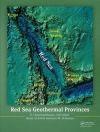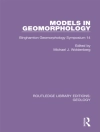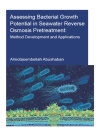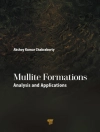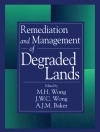Numerous studies report that ultraviolet (UV) radiation is harmful to living organisms and detrimental to human health. Growing concerns regarding the increased levels of UV-B radiation that reach the earth’s surface have led to the development of ground- and space-based measurement programs. Further study is needed on the measurement, modeling, and effects of UV radiation. The chapters of this book describe the research conducted across the globe over the past three decades in the areas of: (1) current and predicted levels of UV radiation and its associated impact on ecosystems and human health, as well as economic and social implications; (2) new developments in UV instrumentation, advances in calibration (ground- and satellite-based), measurement methods, modeling efforts, and their applications; and (3) the effects of global climate change on UV radiation.
Dr. Wei Gao is a Senior Research Scientist and the Director of the USDA UV-B Monitoring and Research Program, Natural Resource Ecology Laboratory, Colorado State University. Dr. Gao is a SPIE fellow and serves as the Editor-in-Chief for the Journal of Applied Remote Sensing.
Dr. Daniel L. Schmoldt is the National Program Leader for instrumentation and sensors at the National Institute of Food and Agriculture (NIFA) of the U.S. Department of Agriculture. Dr. Schmoldt served as joint Editor-in-Chief of the journal, Computers & Electronics in Agriculture, from 1997 to 2004.
Dr. James R. Slusser retired in 2007 from the USDA UV-B Monitoring and Research Program at Colorado State University. He was active in the Society of Photo-Optical Instrumentation Engineers, the American Geophysical Union, and the American Meteorological Society. Dr. Slusser is currently pursuing his interests in solar energy and atmospheric transmission.
Tabella dei contenuti
A Climatology of UV Radiation, 1979–2000, 65S–65N.- Balancing the Risks and Benefits of Ultraviolet Radiation.- Climatology of Ultraviolet Radiation at High Latitudes Derived from Measurements of the National Science Foundation’s Ultraviolet Spectral Irradiance Monitoring Network.- UV Solar Radiation in Polar Regions: Consequences for the Environment and Human Health.- Changes in Ultraviolet and Visible Solar Irradiance 1979 to 2008.- The Brewer Spectrophotometer.- Techniques for Solar Dosimetry in Different Environments.- An Ultraviolet Radiation Monitoring and Research Program for Agriculture.- Radiative Transfer in the Coupled Atmosphere-Snow-Ice-Ocean (CASIO) System: Review of Modeling Capabilities.- Comparative Analysis of UV-B Exposure Between Nimbus 7/TOMS Satellite Estimates and Ground-Based Measurements.- Ultraviolet Radiation and Its Interaction with Air Pollution.- Urban Forest Influences on Exposure to UV Radiation and Potential Consequences for Human Health.- Solar UV-B Radiation and Global Dimming: Effects on Plant Growth and UV-Shielding.- Effects of Ultraviolet-B Radiation and Its Interactions with Climate Change Factors on Agricultural Crop Growth and Yield.- Assessment of DNA Damage as a Tool to Measure UV-B Tolerance in Soybean Lines Differing in Foliar Flavonoid Composition.- Physiological Impacts of Short-Term UV Irradiance Exposures on Cultivars of Glycine Max.- UV-Effects on Young Seedlings of Soybean: Effects in Early Development and Long-Term Effects.- Characteristics of UV-B Radiation Tolerance in Broadleaf Trees in Southern USA.


